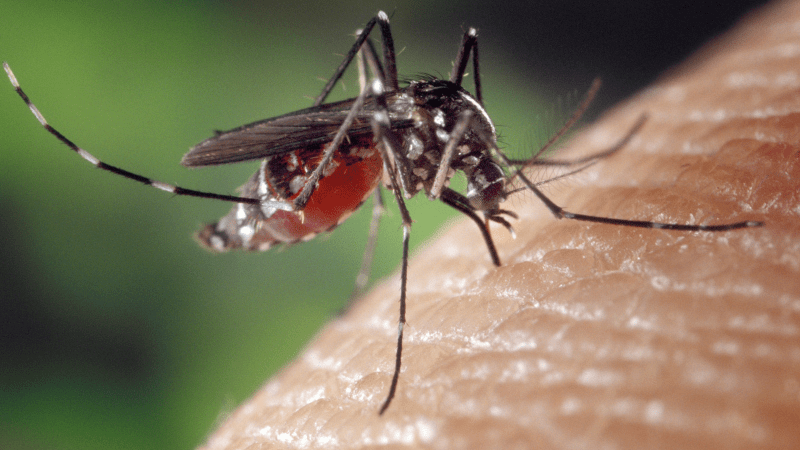MA Town Fights Deadly Mosquito Virus with Nighttime Park Ban
Plymouth closes parks from dusk to dawn to prevent the Eastern equine encephalitis outbreak. The first human case since 2020 prompts heightened awareness and preventive measures across Massachusetts.
Plymouth, a coastal town in Massachusetts, now closes its parks, playgrounds, and fields from dusk to dawn to prevent an EEE outbreak. This move follows worries about Eastern equine encephalitis (EEE), an uncommon mosquito-borne illness that can lead to fatal brain problems. The town started these early closures on August 23 as an outdoor curfew when mosquitoes bite most during peak biting times. It also asked the public to stay aware and follow the Massachusetts Department of Health’s (DPH) tips to avoid mosquito bites and ensure community protection.
This action comes after state health officials said on August 16 that a man in his 80s got EEE, a rare disease, in Worcester County. This news marks a key event in current health events. People say this is the first human case in Massachusetts since 2020, raising a mosquito-borne illnesses alarm.
Michelle Bratti, Plymouth’s Health and Human Services Commissioner, said, “Mass DPH has raised Plymouth’s EEE risk to high. People need to be careful when engaging in outdoor activities. They should follow health guidelines to avoid getting EEE, a mosquito-borne virus, from an infected mosquito. We want to protect our community, residents, and visitors through EEE outbreak prevention.”
Worcester County also worries about mosquito disease. On August 24, state officials announced plans for aerial spraying and truck-mounted spraying in parts of Worcester and Plymouth counties because of the critical EEE risk level.

What is Eastern equine encephalitis (Triple E)?
The Massachusetts DPH tells us EEE, also called Triple E, doesn’t happen often but can be potentially fatal. Just over 115 cases have occurred since people first found it in Massachusetts. EEE tends to appear in Massachusetts every 10-20 years, and the high risk stays until the first frost.
Plymouth’s press release pointed out that, according to the Mass. DPH, “EEE’s death rate in humans ranges from 33% to 70%, with most deaths happening 2–10 days after symptoms start.”
Symptoms may include fever, headache, vomiting, diarrhea, seizures, behavior changes, and drowsiness. The Massachusetts DPH states that brain swelling, or encephalitis, poses the most dangerous and common neurologic severe problems from this mosquito disease.
EEE can worsen, and some patients might slip into a coma within a week.
Humans and some animals serve as “dead-end hosts,” meaning they don’t pass the virus to mosquitoes that bite them even though they become ill.
How do doctors test and treat Eastern equine encephalitis?
Doctors diagnose EEE by observing symptoms and examining spinal fluid or blood to detect the virus or antibodies against it.
At present, humans lack specific vaccines or treatments for EEE. This means we have no vaccine and no cure or treatment. The CDC suggests managing the virus clinically. People with EEE need their healthcare providers to watch them. Doctors might recommend pain relief or other ways to tackle specific EEE symptoms.
Stopping this mosquito-spread illness is vital. Plymouth’s August 23 alert offered tips for locals to practice mosquito bite prevention. These include removing standing water, wearing long clothes that protect you when you’re outside during peak mosquito times, and putting screens on your home. They also said to use EPA-approved bug spray with DEET.
Property owners need to help with mosquito control by reducing the number of places where mosquitoes can breed. They should also drain standing water from buckets, tires, and wading pools. This is important after it rains a lot to help drain any water that’s sitting around.
Which U.S. towns have elevated their EEE risk level to “critical” or “high”?
Four towns in Massachusetts have upped their EEE risk level to “critical”: Douglas Oxford, Sutton, and Webster.
The Massachusetts Department of Public Health says that Carver, Dudley, Middleborough, Northbridge, and Uxbridge have raised their EEE risk levels to “high.” Plymouth was already at this level.
Concerns are rising about the West Nile virus, another disease mosquitoes spread. In July, several local health departments warned people after they found mosquitoes carrying the virus across the U.S. As of August 20, the CDC had reported 216 cases in 33 states in 2024.
On August 24, news broke that Dr. Anthony Fauci, the President’s chief medical advisor from 2021 to 2022, had gone to the hospital with West Nile virus. He’s now getting better at home.
Source:
Rebecca Schneid (August 25, 2024). What to Know About the Rare But Deadly Mosquito-Borne Virus Concerning U.S. Towns. https://time.com/7014674/rare-but-deadly-mosquito-eastern-equine-encephalitis-virus-us-towns/. Accessed August 25, 2024
You may also like to read:
Understanding Mpox: WHO’s Global Health Emergency Declaration
Category
- Health Issues (72)
- Healthy Diet (48)
- Herbs for Health (11)
- Mental Health (33)
- Skin Care (20)
